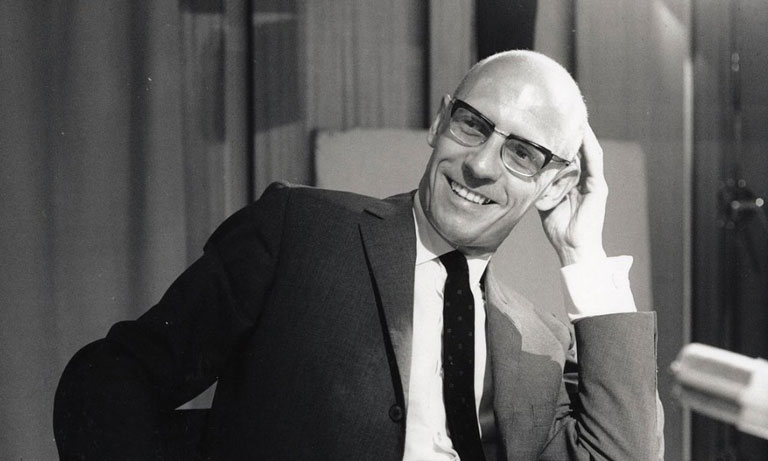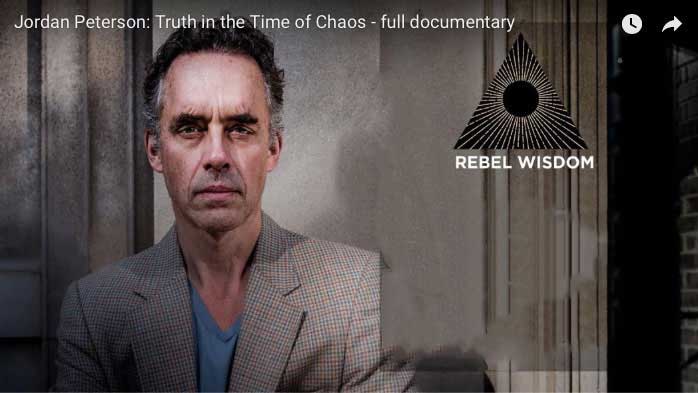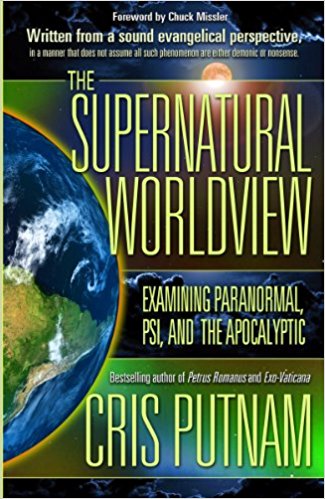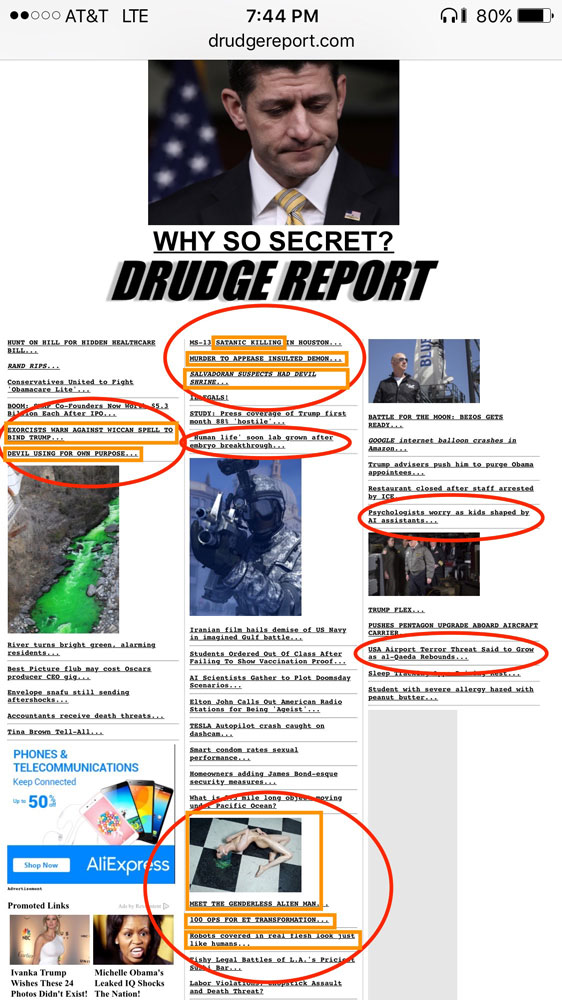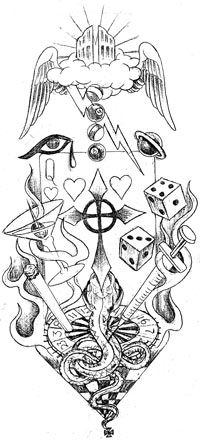On Idolizing the Bible
Commentary on “How the Bible Became an Idol” by Paul Rosenberg
I’ll refer to the author as Rosenberg to distinguish him from the apostle Paul.
“Again I am raising a difficult subject, but again, it’s something that needs to be said. And my title is true. The Bible – the holy book of more or less all Christians – has become an idol. And yes, I do mean idol as in “false god.”
A book, no matter how good, remains a book and should be treated as a book. A deity is something far different.
Not every Christian uses the Bible as an idol of course, but many millions do – probably a majority in North America – including nearly all of the TV preachers.
The Bible is 66 books with ~40 authors written over ~1500 years put between one cover and referred to as “a book”. None of the books are deities nor are they above, or outside of, Reality.
A Christian may hold the Bible to be the most important “book” in the world but it’s not a substitute for God unless He’s absent from their lives (which is probably the crux of the matter, here).
What is an Idol?
An idol is something you hold above reality.
The Bible uses the word “idol” to refer to that which a man holds above, or in place of, God. Since only that which created Reality could be above (outside, beyond) it, Rosenberg’s use of the word is roughly the same.
A true God – a creator of the universe, for example – should be held above reality, since he created reality. If, however, we hold something else above reality, we make it an idol. A created thing should be considered a part of reality, not held above it.
So, when I say the Bible has become an idol, I mean people hold it above reality, putting it into the position of a god.”
The Bible refers to the gods being worshipped in the OT and NT (represented in stone, wood, or gold idols) as real and created by God.1 These created gods, as well as the Bible, “should be considered to be part of reality, not held above it”.
Not a Book-Based Religion?
As long as the relationships between people and their Creator are replaced (avoided) with rituals we’ll be stuck with the word, “religion”.
“Christianity very clearly did not start as book-based. When Jesus “preached the good news,” he quoted just a small number of scriptures and usually as a necessity, answering people who questioned him. And several of those were of the “you’ve heard it said… but I say” variety. He read a few lines from Isaiah in his hometown synagogue once, but we see very little more than that.
Even the very literate Paul uses Greek poets in his sermons almost as much as Old Testament passages. (He uses some scriptures in his writings.)”
The New Testament refers to the Old Testament 2,572 times including allusions, echoes, citations, and quotations.2 Here’s the total breakout as well as that for Jesus and Paul.
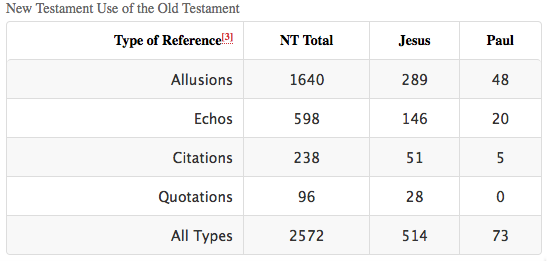
Jesus’ use of the OT is consistent with, “Do not think that I have come to abolish the Law or the Prophets; I have not come to abolish them but to fulfill them.” (Mt 5:17) One astounding aspect of that fulfillment was His abiding by the laws while supplanting them with grace.4 His scripture was the Septuagint (A Greek translation of the Hebrew canon made in 250 BC.).
While Jesus fulfilled the laws, Paul documented much of that fulfillment in canonical extension, later to become known as the New Testament. Paul’s use of the Septuagint is consistent with writing eight to thirteen of the 27 books of the NT.
Stating the Obvious, Extrapolating the Unnecessary5
Those writing, copying, and assembling books of the New Testament did not, themselves, have access to completed copies. To therefore conclude, somehow, that books not yet written were unimportant to those writing them is to extrapolate the unnecessary after stating the obvious.
In that sense, neither is Judaism a book-based religion. The Old Testament was written and assembled into canon over a period of ~1000 years. It was then translated into Greek to make it accessible to Jews who had been in exile so long they’d lost touch with their own language. Does a project requiring 33 generations to complete imply apathy?
The first Christians valued Christ over everything. Their first independent actions were to spread the word about Him and what He’d just done. They weren’t apathetic about writing things down. A remarkable aspect of the NT is how little time had passed from the actual events to the time the 27 books were written and then assembled into canon. They were documenting what they’d witnessed while simultaneously risking their lives to spread a faith that would become the largest in the world.
I do agree with Rosenberg that the apostles and first Christians weren’t risking their lives for a book (or books) but for what they’d just seen. Also, even without completed copies of what has become the New Testament the early Christians were, no doubt, more effective and consistent than most modern Christians.
Facing the Bible
Those of us who’ve read the book know the laws in the Old Testament that no one follows anymore. We know how the apostles disagreed. But – and this is where idolatry comes in – millions of us pretend that we saw nothing and move on. Or if we’re trying to be very religious, we come up with creative interpretations to resolve the flaws.
Conjuring up “creative interpretations to resolve the flaws” is worse than a waste of time. It degrades integrity and faith. It also avoids some of the best opportunities for spiritual growth.
Do the “Bible is the word of God people” think the Author needs their help in deflecting attention away from weak parts of an otherwise stellar attempt to reach mankind?
The Laws that No One Follows Anymore
I’m no expert on Judaism. Still, I doubt that anyone, other than Jesus and a few prophets and priests, managed to abide by all 613 commandments of the law.
There are orthodox Jews who still believe they must abide by most of the laws. They claim to be excused from the sacrificial laws (159 of the 613) because the temple was destroyed in 70 A.D. But, how were they released from the remaining 454? If they don’t recognize Jesus as their messiah how (and when) did these laws become inactive?
The Apostles Disagreed
The most famous disagreement among the apostles arose when Paul publicly admonished Peter for observing Judaic laws after Jesus had fulfilled them. Bob Deffinbaugh’s exposition of the disagreement, and Peter’s capitulation, is excellent.
Using the Bible to Prove Everything
And let me be clear on this: Trying to prove everything by the Bible is a deviation from actual growth. If you’ve done this for any length of time, you’ve hindered yourself.
Rosenberg may be referring to the often lazy habit of quoting Biblical text as self-proving. To a non-believer this is recursive reasoning. It’s much more effective to quote applicable verses and explain why you think they’re true in the context of the discussion.
A larger point to understand is that the Bible doesn’t contain all knowledge. Such would be like a map with a scale of 1-to-1: accurate but useless. There are no microwaves, jet planes, toasters, CAD design programs, or even hidden codes in every 70th (or whatever) letter predicting the third Reich. Neither does Ezekiel contain the design plans for an alien spacecraft. The sooner a Christian is disabused of the notion that everything is in the Bible, the better.
The Bible is what God deemed sufficient for the realms it covers. It was not intended to be exhaustive. Exhaustive knowledge is a utopian myth. Humans have to work for knowledge just as they have to work to get food from the ground.
Doing, Or Not Doing?
Readers of the book really should know these things. The core of the New Testament – the recorded words of Jesus – require people to do the things he taught. The “Bible as word of God” people, on the other hand, spend endless hours arguing about who Jesus was, comparing scriptures, finding hidden meanings, proving their interpretations right, and proving the interpretations of others wrong. And so they bypass doing.
Though admonished by one commenter to “stick to subjects he knows about”, Rosenberg could just as well be paraphrasing Paul in 1 Timothy 1:3–7:
“As I urged you when I was going to Macedonia, remain at Ephesus so that you may charge certain persons not to teach any different doctrine, nor to devote themselves to myths and endless genealogies, which promote speculations rather than the stewardship from God that is by faith. The aim of our charge is love that issues from a pure heart and a good conscience and a sincere faith. Certain persons, by swerving from these, have wandered away into vain discussion, desiring to be teachers of the law, without understanding either what they are saying or the things about which they make confident assertions.”6
The Sad Part
“The central requirement for any follower of Jesus is to love. Everything else comes second. Jesus not only taught this again and again; he exhibited it in his life. Christians, however, consistently push it aside in favor of other things. (I could tell you stories, but you probably have your own.)”
Indeed, “For the whole law is fulfilled in one word: “You shall love your neighbor as yourself.” (Ga 5:14)
“The really sad part of this is that the Bible idolaters – or at least a great number of them – do have experience with the divine impulse, of contact or at least innate yearning for a transcendent ultimate. But they never develop these things, because they’re busy idolizing a mere book, following the traditions and commandments of men.“
Jesus condemned the Pharisees for treating the OT in exactly this way. How much worse for a Christian to do the same with the completed Bible?
What’s Rosenberg Getting At?
Rosenberg sees the Bible as a valuable resource. He greatly appreciates the impact that Judeo-Christian ethics have had on western civilization. He believes there’s a creator of the universe distinct from the created. He has a “divine impulse” and “innate yearning for a transcendent ultimate”. So, why would someone so philosophically, though not theologically, aligned with Christianity be frustrated enough to write about Christians using the Bible as an idol?
At the risk of being presumptuous I’ll put into my own words what I think are some of Rosenberg’s points. If doing so would make fellow Christians consider them then it will have been worth the effort:
- Because of the enormous, yet squandered, human potential of a third of humanity. If a small fraction of that number patterned their thoughts, will, abilities, beliefs, and expectations on the full range of Jesus’ teachings the world would be so dramatically transformed it might be mistaken for heaven.
- Because millions of Christians who claim Jesus as their role-model either don’t take him seriously enough, or are afraid to discover, let alone implement, the full breadth of His teachings.
- Because the Book of Acts describes the behaviors and experiences of Christians before there was a Book of Acts. And yet, the first Christians were more Christ-like, with limited access to fragments of text, than modern Christians are with a completed New Testament.
The Christian Difference
Voltaire is credited with saying, “Show me your redeemed life, and I’ll believe in your Redeemer”. And then there’s the rhetorical question that, “If you were jailed for being a Christian would there be enough evidence to convict you?”.
There’s nothing different about people living inconsistently with their own stated beliefs. You can find them in every house and on every street-corner in the world. Christians are supposed to stand out in such a way as there’s no doubt that something is different about them. Why else would anyone care to learn more about their beliefs?
Can we blame non-believers for concluding that a redemption without fruit is no redemption, at all?
The Christian difference occurs in believers who call Jesus a role model and have the courage to act consistency with the goal of becoming more like Him.
That means diving into his teachings and exposing yourself to the full-spectrum of what you find. No picking and choosing what you, or those around you, might be comfortable with. No strip-mining the supernatural out of the events. No arrogant presumptions that God needs your protection of His Bible because someone sent you a list of “flaws” on Facebook.
Set a goal of nothing short of putting on the mind of Christ. “Aim at Heaven and you will get Earth ‘thrown in’: aim at Earth and you will get neither.”7
Faith without Works
Faith without works is trust without transformation. It’s an attempt to be oriented towards the Creator without “power according to his glorious might”. (Col 1:11) In daily life, it’s hope without joy.
Transformation of Character and Supernatural Power
Dallas Willard, speaking on “Being Church” said:
“When the kingdom of God is present, power flows. And what characterize the people of Christ throughout the ages is transformation of character and supernatural power. Those two things always follow. When Jesus brought the kingdom he brought manifestation.”
That’s what the early Christians had and what many of today’s Christians don’t have. That’s what’s at the core of Judeo-Christian ethics that have transformed the world.
The early Christians weren’t risking their lives for unfinished scrolls on parchment or papyrus. And they weren’t risking their lives because Jesus was a smart guy who’d just laid some awesome philosophy on them. They risked their lives to remain true to what they’d just witnessed: Jesus performing miracles all over the place, raising people from the dead and then rising, himself, from being dead. And if that wasn’t enough, walking around and eating meals with them while detailing how He’d just fulfilled their scriptures. It was the resurrected Jesus that told them, “All authority in heaven and on earth has been given to me. Go therefore and make disciples of all nations, baptizing them in the name of the Father and of the Son and of the Holy Spirit, teaching them to observe all that I have commanded you. And behold, I am with you always, to the end of the age.”8
In that sense, I agree with Rosenberg, that Christianity is not a book-based religion. It’s a relationship with God centered around His presence in our actual lives. Without transformation of character and supernatural power there will be no great works. But, with them?
The world is yours!9

